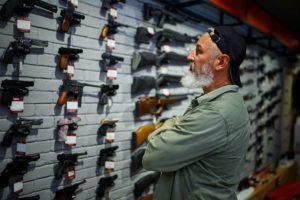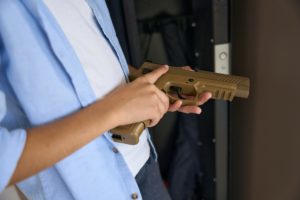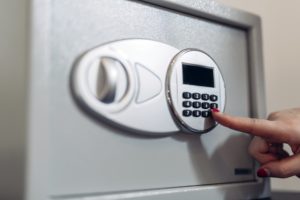Virginia is for lovers (of tobacco, alcohol, and guns). And when it comes to guns, it’s not an overstatement to say that Virginia’s long history of supporting the 2nd Amendment makes it one of the easiest places to purchase a gun in America.

For the purposes of this article, all types of guns, from handguns to air guns are referenced as firearms, as all types of guns can be deadly.
Virginia and the 2nd Amendment
While Virginia hasn’t universally adopted common-sense laws, there have been some strides in recent years to implement safer regulation. For instance, in 2020, Virginia passed a major suite of gun safety laws, including requiring background checks for all sales. And, domestic abusers subject to restraining orders are now ordered to relinquish their weapons.
Many laws still reflect leniency with firearms in Virginia as they relate to the 2nd amendment. Below are a few examples:
- Aside from machine guns, registering a firearm is not required.
- There are no waiting periods before purchasing a gun.
- Individuals can purchase a gun as early as 18-years-old.
- Virginia has certain counties referred to as “gun sanctuaries” – areas that have adopted laws or resolutions to prohibit or impede the enforcement of certain gun control measures.
- The state does not require that firearms be locked or rendered inoperable in the home, even if loaded. In fact, it is not a crime to have a loaded, unsecured gun in a home where children reside, unless the gun is stored in a “reckless” manner such that it endangers a child under the age of 14.
By contrast, other states (such as New York) require that guns be stored unloaded, and inoperable. Sadly, Virginia’s “hands off’ approach to guns has led to preventable, serious firearm incidents.

Copyright: MGM Studios
What is an air gun?
An air gun, often referred to as a “BB gun” or pneumatic gun, shoots pellets with compressed air. Less visible in the media and public consciousness, but in some instances equally life-threatening, are injuries caused by the careless handling of these weapons.
Some important facts regarding air guns include:
- The down range energy that most air guns can deliver has increased exponentially since the old days of the Daisy Red Rider. Today’s common air guns can take small game and seriously injure and maim a human.
- Some air guns are designed to deliver enough power to kill large game, or even humans.
- Virginia law has, however, deemed that an air gun is not a firearm. In turn, these devices (however lethal) are not subject to regulation unless they are used to commit crimes of violence or brought to very specific places.
- There is no regulation regarding who can use air guns, how they are stored, or even if they are carried concealed.
Children, teens, and firearms
The most tragic incidents occur when a child or young adult finds a loaded firearm and discharges it unintentionally, injuring or killing themselves or another. Typically, handguns are the culprit in these scenarios.
Children often look for things that they know they shouldn’t touch, and teenagers seem to enjoy the forbidden pleasure of playing with firearms – especially handguns. These risks are compounded exponentially when teenagers are under the influence of alcohol.
Can a hidden, unloaded gun get set up in time to fight off an intruder?
Many gun owners who store their firearms in their homes do not lock up their weapons because they want quick access for self-defense. In other words, the firearm owners keep the weapons easily accessible because they want immediate access to them, should an intruder enter their home.
However, there are many ‘quick access’ gun vaults that accomplish both ‘safe storage’ and ‘quick access’ at the same time. For example, a Fort Knox PB1 safe allows users to retrieve and load it in 10 seconds or less.
Guns and common sense
Evidence and common sense tell us that firearm owners can prevent almost all unintentional (and even some intentional) discharge incidents. It is recommended they seek safe storage for their firearms, preferably in a locked safe-type container or a gun vault.
Common sense also dictates that we “treat air guns with the same respect for safety you would give to real firearms. That means you should never point them at anything that is not a target and certainly should never point them at other people (with the obvious exception of paintball guns and properly-equipped opponents in appropriate settings). You should keep them encased, slung, or holstered until ready to use and such use should only be in appropriate places.”
As a public service announcement, store your firearms safely if you have children or teenagers in your home. If you keep a pistol for self-defense, keep it in a quick access gun safe. Firearm and air gun injury or death cases are fact-specific and require careful analysis by competent attorneys to determine whether recovery for the injured is possible.
If you have been injured by a firearm or air gun through no fault of your own, contact Allen & Allen for a free consultation, at 866-388-1307.






